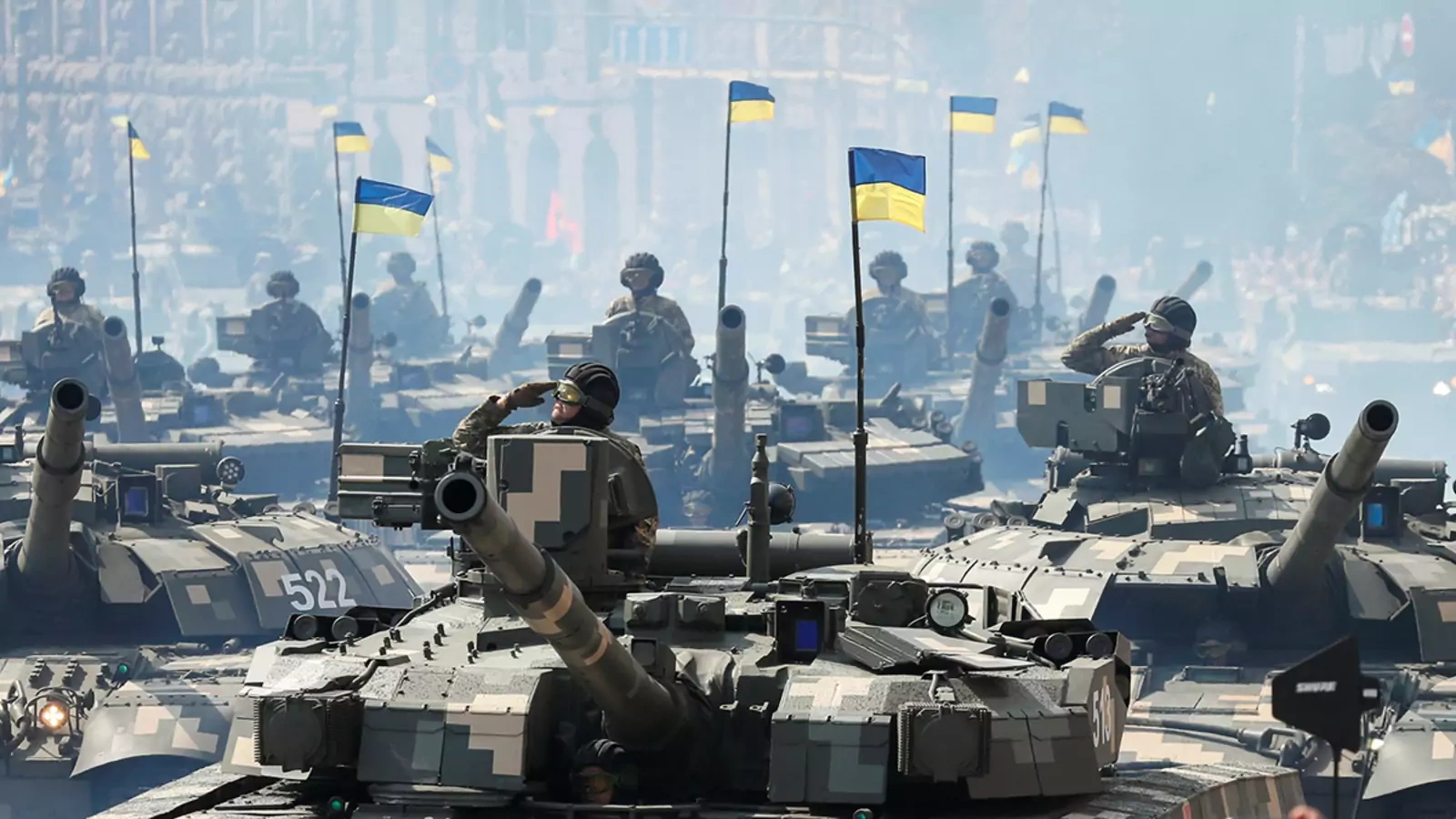Legal Principles Matter in Defense of Democracies

Originally published at Opinio Juris
January 18, 2022 11:13 am (EST)

- Article
- Current political and economic issues succinctly explained.
Legal principles matter as two major democracies—Taiwan and Ukraine—are threatened by superpower neighbors. Whether one argues about Taiwan’s status as a country or a province of China, it is a vibrant democracy of 23.5 million people. Whether one argues about Ukraine’s independence or historical fealty to Russian influence, it too is a democracy, flawed with corruption but a forward-looking society of 44.1 million citizens dedicated to representative governance.
Statesmen and commentators rarely use potent legal terms for what is at stake in the survival of these democracies: sovereignty, aggression, and collective self-defense. These are bedrock principles of international law and we should employ them more often. There is understandable focus on diplomacy, military capabilities, and whether the United States has a self-defense obligation towards Ukraine or Taiwan. But we must not lose sight of fundamental violations and rights under the law.
More on:
“Sovereignty” is clearly at stake for Ukraine and pragmatically relevant for Taiwan. Ukraine achieved its full modern independence in 1991 as the Soviet Union broke up. Ukraine actually has held membership in the United Nations since 1945 with the safeguards and privileges that nations should enjoy under the UN Charter. This includes Ukraine’s legal right not to have its international borders violated by Russian troops.
Taiwan’s status is more complicated in light of post-World War II claims between Beijing and Taipei as to the de jure governance of mainland China and the island of Taiwan. For all practical purposes, the Taipei government no longer lays claim to the mainland while Beijing continues to insist on its legal authority over Taiwan. The People’s Republic of China has held the only Chinese seat in the United Nations since 1971, when its occupancy switched from the government lodged in Taipei to the Communist regime in Beijing.
But a cardinal rule applied by the United States to the dispute over Taiwan is that governance must ultimately be resolved peacefully, respecting the will of the people of Taiwan, and not by force of arms, an objective reinforced by UN Charter principles. That the sovereignty of Taiwan may be contested does not deprive it of protection under the law, particularly with its unique circumstances. Rather, it defines a legal dispute to be resolved peacefully. In the meantime, while Taiwan has no legitimate right to aggressively invade mainland China, neither does Communist China have any international legal right to aggressively invade democratically-governed Taiwan.
Any sovereign nation, like Ukraine and for all practical purposes Taiwan, has the “inherent” right to seek the help—military or otherwise—of another nation when it becomes the target of an aggressor force, whether aggression by another nation’s armed forces or by insurgents and shadow militia who cross onto the territory of the victim state. That right is built into Article 51 of the UN Charter and is only superseded by collective measures approved by the UN Security Council, assuming none of the permanent members of the Council—China, France, Russia, United Kingdom, and United States—veto any resolution challenging the self-defense actions.
The default principle thus remains the inherent right of collective self-defense. This rule of customary international law was employed during World Wars I and II against aggressive empires and, codified in the UN Charter, to liberate Kuwait following Iraqi aggression in 1990.
More on:
The foremost purpose of the UN Charter is to “to take effective collective measures…for the suppression of acts of aggression…” Russian President Vladimir Putin appears to seek the resurrection of Soviet-era control over Ukraine and concocts fears about a military threat from Ukraine. But Putin already has confirmed Russia as an aggressor nation in its illegal annexation of Crimea in 2014. To his credit, Secretary of State Antony Blinken recently described countering “Russian aggression against Ukraine.” If Russia were to invade Ukraine afresh, as feared with the massive military build-up on Russia’s border with eastern Ukraine, two cardinal international law principles would be egregiously violated: the sovereignty of international borders and the prohibition of aggression.
This means that while the United States and other NATO countries, for example, have no legal obligation to come to Ukraine’s defense if Russia invades, these military powers have full authority to respond to a Ukrainian request for assistance, including armed force. So, while the collective self-defense obligation of Article 5 of the NATO treaty does not embrace non-NATO Ukraine, the inherent right of collective self-defense under international law and the UN Charter applies. The allied governments of NATO should unequivocally signal that they do not shy away from inherent collective self-defense of Ukraine or any other nation invaded by an aggressor state. Otherwise, Putin may miscalculate that the absence of a treaty obligation for self-defense deprives the United States and its allies of a strong legal basis for coming to Ukraine’s aid.
The principle of collective self-defense also applies to the protection of Taiwan from Chinese aggression, a point not lost on such East Asian neighbors as Japan and Australia. The Taiwan Relations Act confirms U.S. resolve to honor collective self-defense for Taiwan with military aid and, if there is any danger to U.S. interests arising “from any threat to the security or the social or economic system of the people on Taiwan,” with a decision by the President and Congress about the appropriate responsive action.
If no government responds with effective military support to Kiev’s plea of inherent collective self-defense in the face of renewed aggression by Russia, then Moscow not only might conquer and occupy the sovereign and democratic nation of Ukraine, Putin would impale the UN Charter. A similar outcome would arise if powerful nations stood aside in the face of a Chinese invasion of Taiwan, delivering a fatal blow to the rules-based order heralded by the Biden Administration.
 Online Store
Online Store